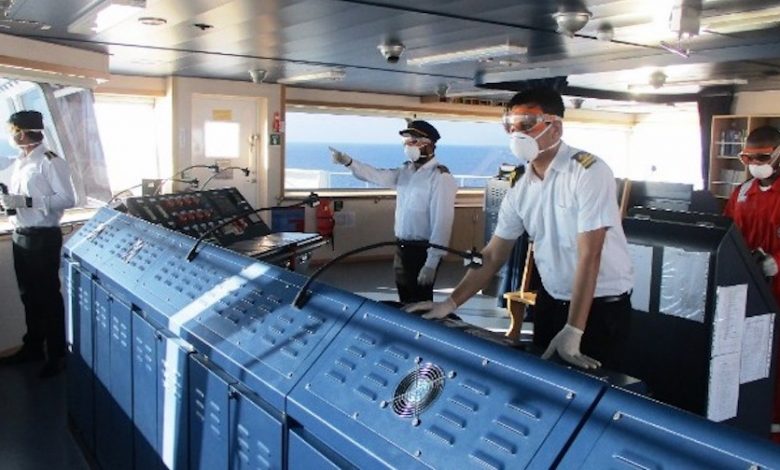
Satcoms giant Inmarsat has published a new report pinpointing the impact of Covid-19 in accelerating global shipping’s digital journey.
Written by maritime innovation consultancy Thetius, the report captures a sector fast-tracking IoT-based solutions from November 2019, when the coronavirus was first detected. The report characterises Covid-19 as a “universal disruptor and catalyst for digital transformation”.
“The impact of Covid-19 on ship operations is evidenced by a massive increase in the use of remote services such as pilotage and surveying,” the report states. “Similarly, crew training and officer examinations went fully online for the first time ever in some jurisdictions. More broadly, global trade facilitation saw an explosion in the use of digital tools, including massive growth in consumer demand for e-commerce and the use of online booking platforms for shipping freight.”
Inmarsat’s own data covering commercial shipping during the pandemic period showed that the average daily data consumption per vessel nearly tripled, from 3.4 to 9.8 gigabytes between January 2020 and March 2021. In a further significant shift, the authors project the global maritime digital products and services market in 2021 as being worth $159bn – 18% ahead of pre-pandemic forecasts. Thetius predicts that, by 2022, market turnover will be three years ahead of pre-pandemic forecasts. Looking ahead, Thetius estimates the global maritime digital products and services market will be worth $345bn by 2030, up from a previous forecast of $279bn.
“Digital solutions are now pervasive in maritime, and one consequence of Covid-19 has been that our customers – and their customers – increasingly think digital first,” commented Stefano Poli, VP business development, Inmarsat Maritime. “The last 18 months have been challenging, but they have also brought a seismic shift in attitudes in favour of IoT-based solutions for crew connectivity, safety, sustainability and ship efficiency.”
Data from the Thetius intelligence platform shows that, since 2008, the UK has produced the highest number of maritime technology businesses in the G7 connected to ship operations and management. The UK is also second only to the United States as the most abundant source of cloud computing, data and analytics, and artificial intelligence (AI) technologies for the maritime sector.
